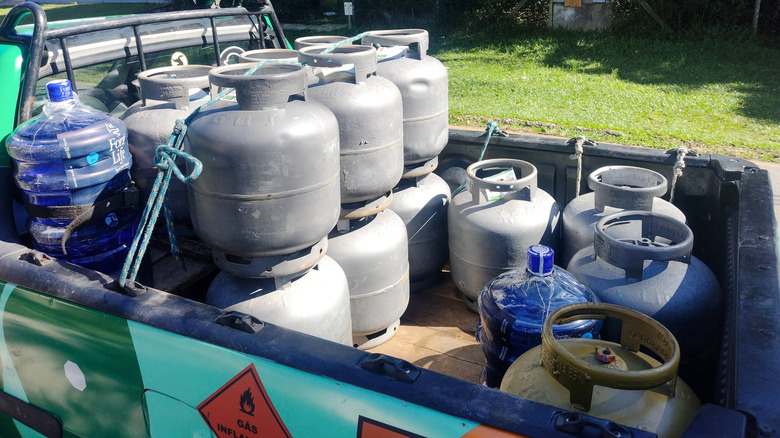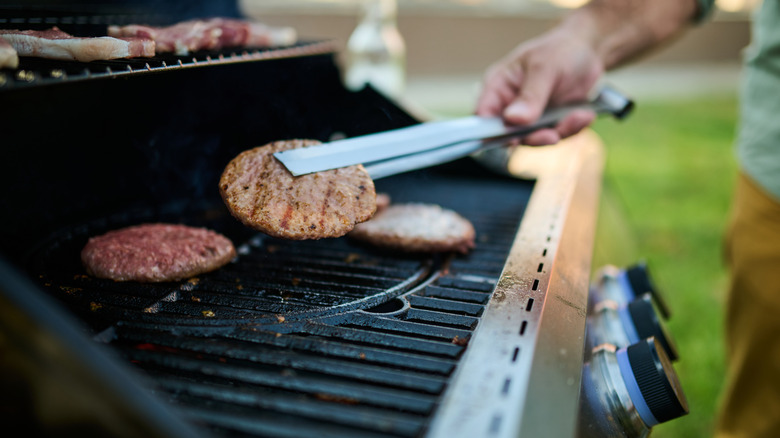Is It Safe To Drive With Propane Tanks?
Not all of us have Hank Hill levels of propane knowledge. And given that propane is prized for its flammable properties, it's probably natural for all of us to be a little nervous around propane tanks. However, there is some good news: Propane tanks rarely explode. But if your tank is low (you should always check your propane levels before grilling) and you need to run to the store to pick up a refill, there are some easy-to-follow tips to keep you safe during your travels.
The first thing to do when driving with a propane tank is always keep it upright. Every propane tank comes with an over pressure vent which must be in contact with the propane liquid at all times in order to prevent disaster. That means you need to keep your tank upright while moving. You can do this by securing the tank in your flatbed with a bungee cord, wedging the tank between seats, or placing it in a milk crate (or something similar) in the trunk. It's also a good idea to make sure you don't have any other errands to run. If you do, grab the propane tank last. Never keep a propane tank in a hot, poorly ventilated car. When you're home, always store it somewhere sheltered at least 10 feet from your home.
Fit the fuel to your needs
We've covered why propane is actually healthier to use than charcoal while boasting the same level of safety as natural gas. But there are sometimes where you just need or want to use charcoal or wood. For most people's needs, propane often wins the day in terms of safety and convenience. Propane heats up and cools down quickly and taking care of a propane grill is as easy as cleaning any modern stove.
Let's say you like to stock up on propane tanks so you have extras at the house. How many tanks of propane could you safely carry around at any given time? Generally, you'll want to limit the number of full propane tanks you're transporting to four tanks at a time. This isn't just good advice. It's actually a safety regulation you need to follow. If you need to carry more propane than that, you'll need to transport them in an open flat bed truck or an open trailer.
You'll also want to follow other common sense safety measures like not smoking or vaping near propane tanks. Before you get moving, always check for a compromised tank. You'll want to look for dents, any kind of damage to the tank, and strong smells. Propane is naturally odorless, so commercial propane has an added sulfur compound which makes it smell kind of like rotten eggs. Follow these simple steps and you'll be good to go when you transport propane.

